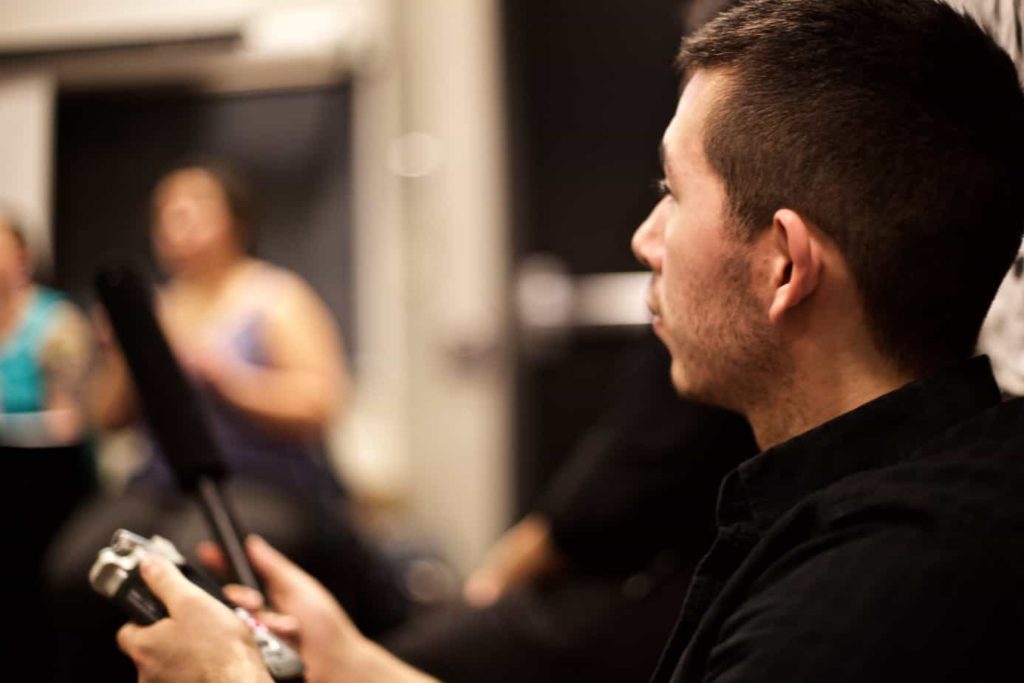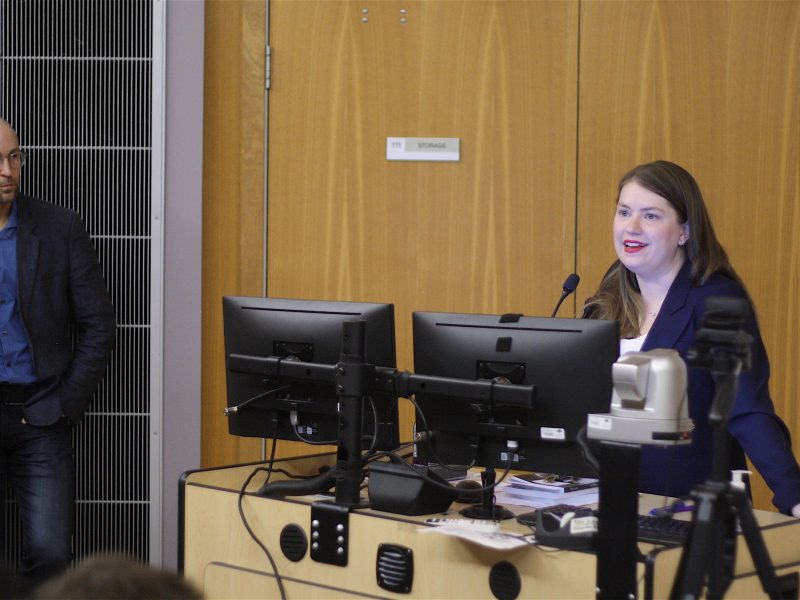
When it comes to First Nation, Inuit and Métis Peoples and news media, there is a long history in this country of a lack of representation, perpetuation of stereotypes and journalists causing harm. In many places in Canada, the media doesn’t serve the local population as it should.
“Indigenous Peoples are not well served by local and national news media, if at all. What a news story is to a mainstream editor is often not the information Indigenous Peoples need to make decisions in their everyday lives,” says Cheryl McKenzie, executive director of news and current affairs at APTN. “As the world’s first independent Indigenous broadcaster, APTN has been part of changing that in Canada. We know we will need new models and approaches to ensure independent Indigenous news remains strong into the future.”
That’s why APTN is teaming up with The Discourse on a new endeavour to build new digital local media outlets focused on serving First Nations, Inuit and Métis Peoples — starting by launching a new outlet in the Okanagan Valley in British Columbia.
Our goal is two-fold: first, to provide journalism that serves and is driven by what local communities say they want. Second, to experiment with new business models for digital local news that contribute to the long-term sustainability of independent Indigenous news in Canada.
“We have taken a hard look at how journalism has contributed to inequity in Canada and we are committing to doing things differently,” says Erin Millar, founder and CEO of The Discourse.
“We don’t want to tell stories driven by the latest press release or tragedy. We want to start by building relationships and listening to people, so that we can serve them through our work,” Millar says.
Starting in the Okanagan
So we knew what we wanted to do, but why did we decide on the Okanagan?
To start, a number of communities were put forward by both organizations. The Discourse dug through data from The Local News Research Project, which has been mapping media closures and openings throughout Canada, an analysis of underserved communities compiled by researchers for Journalists For Human Rights (JHR), and News Media Canada circulation data.
We also looked at local news coverage, band council publications and talked about which places we wanted to hear more stories from. Ultimately, we decided that there was news poverty in three regions where we felt like we could have an impact: Okanagan, northern Vancouver Island, and Southern Saskatchewan.
We applied for funding through the Government of Canada’s Local Journalism Initiative for all three locations, with the goal of creating a network of local independent Indigenous news outlets. In addition to serving these local communities, our goal was also to experiment with business models that can strengthen independent Indigenous news elsewhere.
Our Okanagan proposal was successful, which provides funding to hire two reporters in the region. APTN and The Discourse are also providing funding and in-kind resources to launch the new outlet.
“We are excited to get more voices and stories out there from the Okanagan,” says McKenzie. “Our intention is to genuinely listen and provide value to the local community.”
If you are connected to the Okanagan region, we want to hear from you. How could the media serve you better? What stories need to be told? Whose voices need to be heard? Click here to tell us what you think. If you’d rather have a phone conversation or meet in person, email lindsay@thediscourse.ca.
Before posting the reporter openings, we want to listen and learn more about what is needed. If you’re a journalist and you have ideas or are keen to get involved, reach out to us.
How did this partnership come to be?
The Discourse and APTN first began exploring collaboration on this initiative after APTN’s former executive director of news and current affairs Karyn Pugliese and The Discourse’s founder and CEO Erin Millar met at a Public Policy Forum workshop in Ottawa in March 2018. The event brought together news industry leaders with Canadian Heritage government officials seeking feedback on how to implement the $50 million Local News Fund announced in the 2018 federal budget.
Pugliese and Millar found common ground on many issues facing news media in Canada, including a vision to diversify media, in ways that ensure news serves underrepresented communities.
“We both understood how new technology is disrupting the journalism industry, and that the industry had never been fully representative of Canada’s diversity,” says Pugliese, who is now an assistant professor at the Ryerson School of Journalism and a Nieman Fellow at Harvard University. “We understood changes were going to happen to the industry with or without us. We could be frightened of change or embrace the opportunity to build something new.”
Both Pugliese and Millar were hesitant about media relying on long-term government funding. But they could see a role for a short-term intervention to support new players entering the industry, or temporarily support for current media who need to pivot their business model to survive.
“It was especially important to me that the hard work the APTN team had done to make space for Indigenous voices in the public space would not go silent,” says Pugliese.
The following June, Pugliese convened a group in Winnipeg to discuss digital innovation, including The Discourse and Journalists for Human Rights (JHR). In the following months, the three organizations combined their visions for how to support a more diverse and sustainable media industry into a proposal to Canadian Heritage’s Local News Fund, which eventually became the Local Journalism Initiative.
“We looked at the root of problems facing the media sector in Canada and what each organization could bring in terms of expertise: APTN’s experience serving Indigenous communities, JHR’s successful media development programs and The Discourse’s digital and business model innovation,” says Millar. “We proposed something that could really move the industry in the right direction for the long run.”

While that proposal was not successful, APTN and The Discourse continued to seek ways to work together to achieve the same goal. The Discourse and APTN have partnered on major journalism projects including Spotlight: Child Welfare, a collaborative journalism project focused on deepening reporting on child welfare in B.C., and Tracking Trans Mountain, an investigative journalism project that was focused on presenting a more clear picture of the state of consultation across all of the communities affected by the Trans Mountain Expansion Project.
For its part, JHR is excited to pursue a separate media development project to explore ways to adapt the organization’s Indigenous Reporters Program in the Okanagan collaboratively with First Nation communities, academic institutions and Indigenous service providers, and is encouraged by opportunities being brought to the region by The Discourse and APTN.
“After years of working together on other projects, we are thrilled to work with The Discourse to create this new digital media outlet,” says McKenzie. “APTN’s mission is to share our Peoples’ journey, celebrate our cultures, inspire our children and honour the wisdom of our Elders.”
The new outlet will draw on APTN’s experience serving First Nations, Inuit and Métis Peoples and The Discourse’s six years of experience developing in-depth local news offerings in underserved communities, including Vancouver’s urban Indigenous population. It will be modelled off of The Discourse’s successful digital journalism outlet, The Discourse Cowichan.
“Together, we hope to be able to provide something of real value in the Okanagan and beyond,” says Millar. [end]
Lindsay Sample is the executive editor of The Discourse based in Vancouver on the unceded territory of the xʷməθkʷəy̓əm (Musqueam), Skwxwú7mesh (Squamish), and səl̓ilwətaɁɬ / sel̓íl̓witulh (Tsleil-Waututh). She has worked in the industry for over eight years, four of which have been spent developing a new model for in-depth and community-drive local news at The Discourse. As a journalist and a settler, Lindsay is committed to decolonizing journalism through her storytelling, editing and community engagement work. She earned her masters in journalism from UBC, where she participated in Duncan McCue’s Reporting in Indigenous Communities program.



